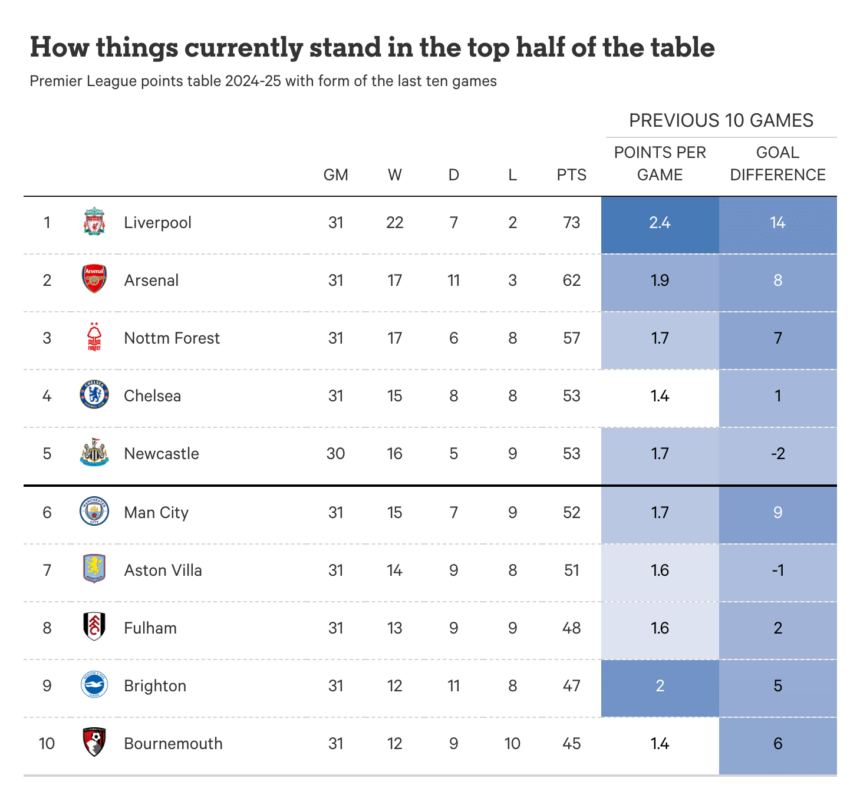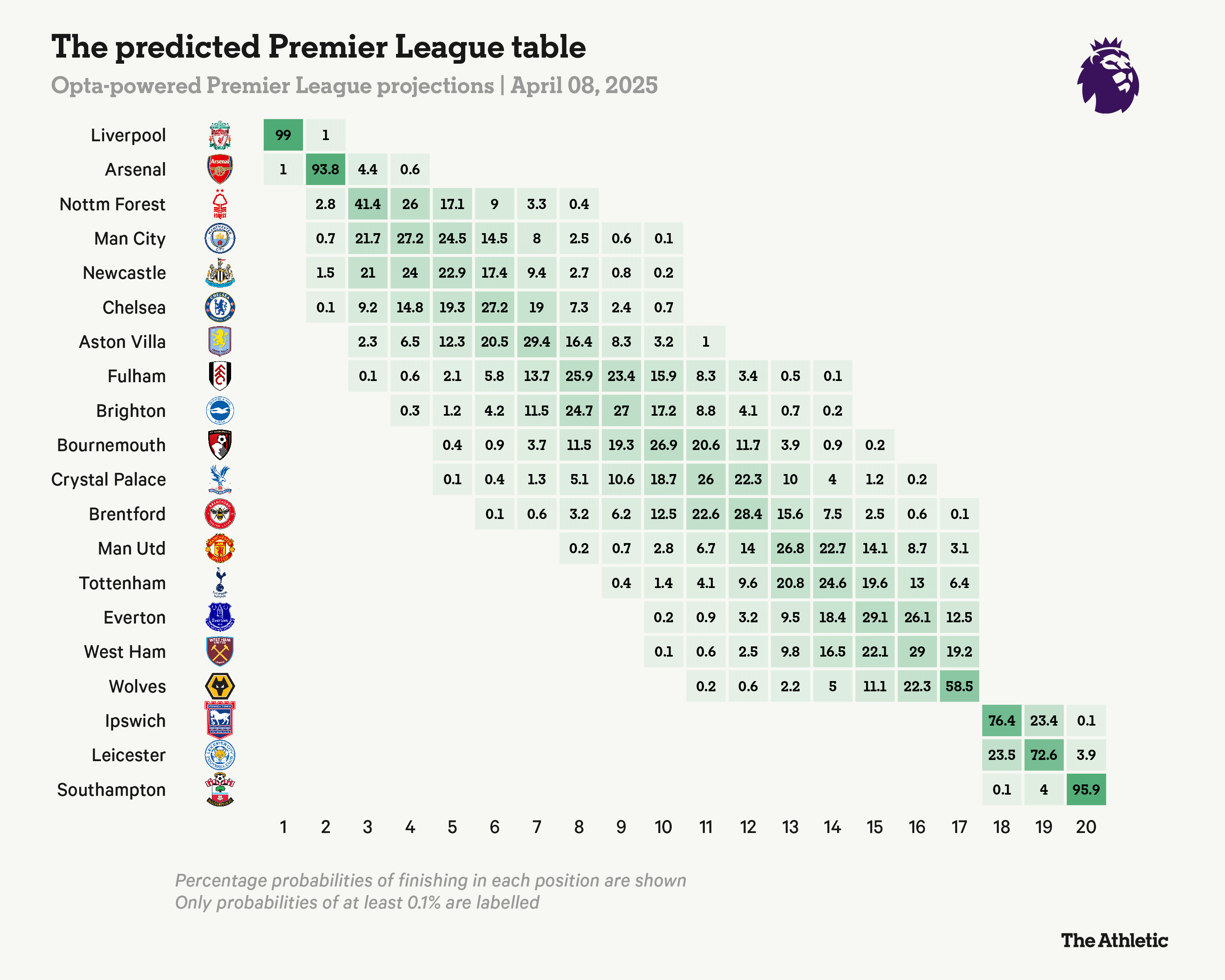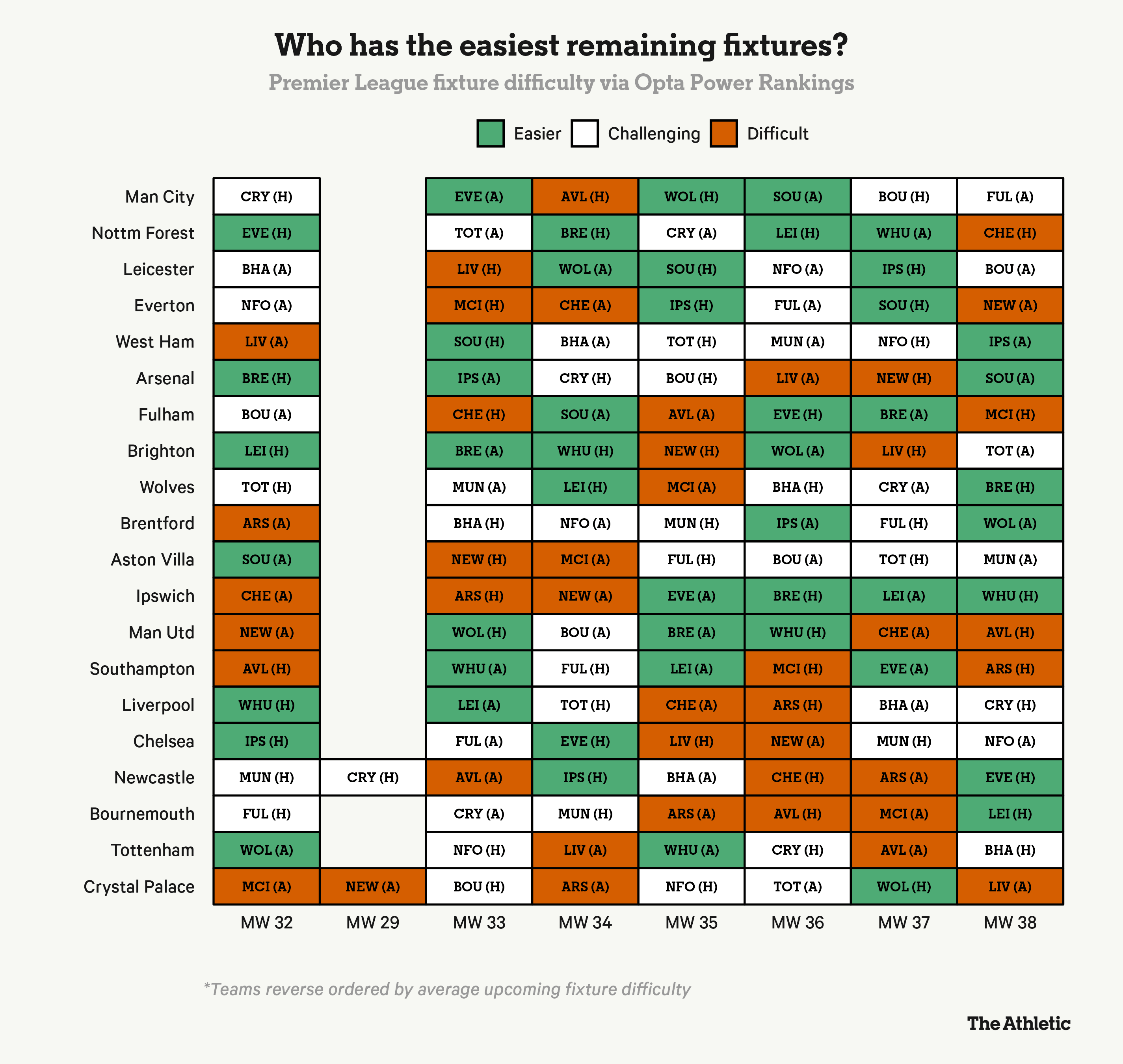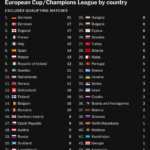Arsenal’s 3-0 win against Real Madrid on Tuesday in the first leg of a Champions League quarter-final was notable not only for Declan Rice’s direct free-kick double, but also as the result which sealed a fifth place in that competition for Premier League teams next season, through the European Performance Spots (EPS).
Advertisement
The English top flight is now guaranteed one of the two EPS places for 2025-26, with Spain’s La Liga likely to take the other.
With the relegation battle all but over, and Liverpool needing only 11 points from their remaining seven games to secure the title, the race to finish in the top five is the most interesting undecided element of this season’s final two months. With that in mind, The Athletic will examine the state of play each week as the fight intensifies.
Here’s how the Premier League table looks heading into matchweek 32 this weekend:
Liverpool and Arsenal can already start planning for eight more Champions League league-phase fixtures between September and January — but from Nottingham Forest down to Aston Villa, things are very tight.
Realistically, it looks like Forest, Villa, Chelsea, Newcastle United and Manchester City are fighting for three spots, although Fulham, Brighton and Hove Albion and Bournemouth could all shove themselves into real contention with a strong set of results. It’s probably worth noting Brighton have averaged two points per game across their past 10 fixtures, a rate only Liverpool can better in the division.
Opta’s prediction model — which simulates the remaining fixtures 10,000 times to come up with its results — agrees that Fulham, Brighton and Bournemouth are unlikely to make a successful push for the top five; it also says Forest are likely to hold onto third place.
The rest, though, is very much up for grabs.
Why is Champions League qualification so important?
The first thing to know about the Champions League — the new Champions League, not the old Champions League in the format used until this season — is that it is lucrative. Very lucrative.
Qualifiers for the now 36-team league phase earn €18.62million (£16m/$20.7m) just for being there. That’s more than four times what Europa League sides receive for the same achievement in UEFA’s second-tier competition. Moreover, it’s above the €17.1m Fiorentina made in total from the third-tier Conference League last season — and they were its highest-earning club.
Advertisement
Win a league-phase match in the Champions League and UEFA, European football’s governing body, will reward you with €2.1m for your efforts. A draw gets you €700,000. Finish in the top eight and you’ll get a further €2m, a final placing in the next eight gets you €1m, but then you’ll also get another €1m for playing in the knockout play-off round if that happens, so really you get €2m too.
Dizzy yet? This is all before the performance money beyond the league phase, which ranges from €11million for going out in the round of 16 to €63.5m for winning the whole thing.
There’s a ‘value pillar’, too, where the money goes up a notch further if you’re an English club. This is, in short, distributed according to historic individual performance and your domestic broadcasters’ contribution to the overall Champions League TV money. The English broadcasters pay a lot — in every season since 2003-04, their share of the tournament’s TV pool has been either the highest or second-highest — so English clubs get paid a lot.
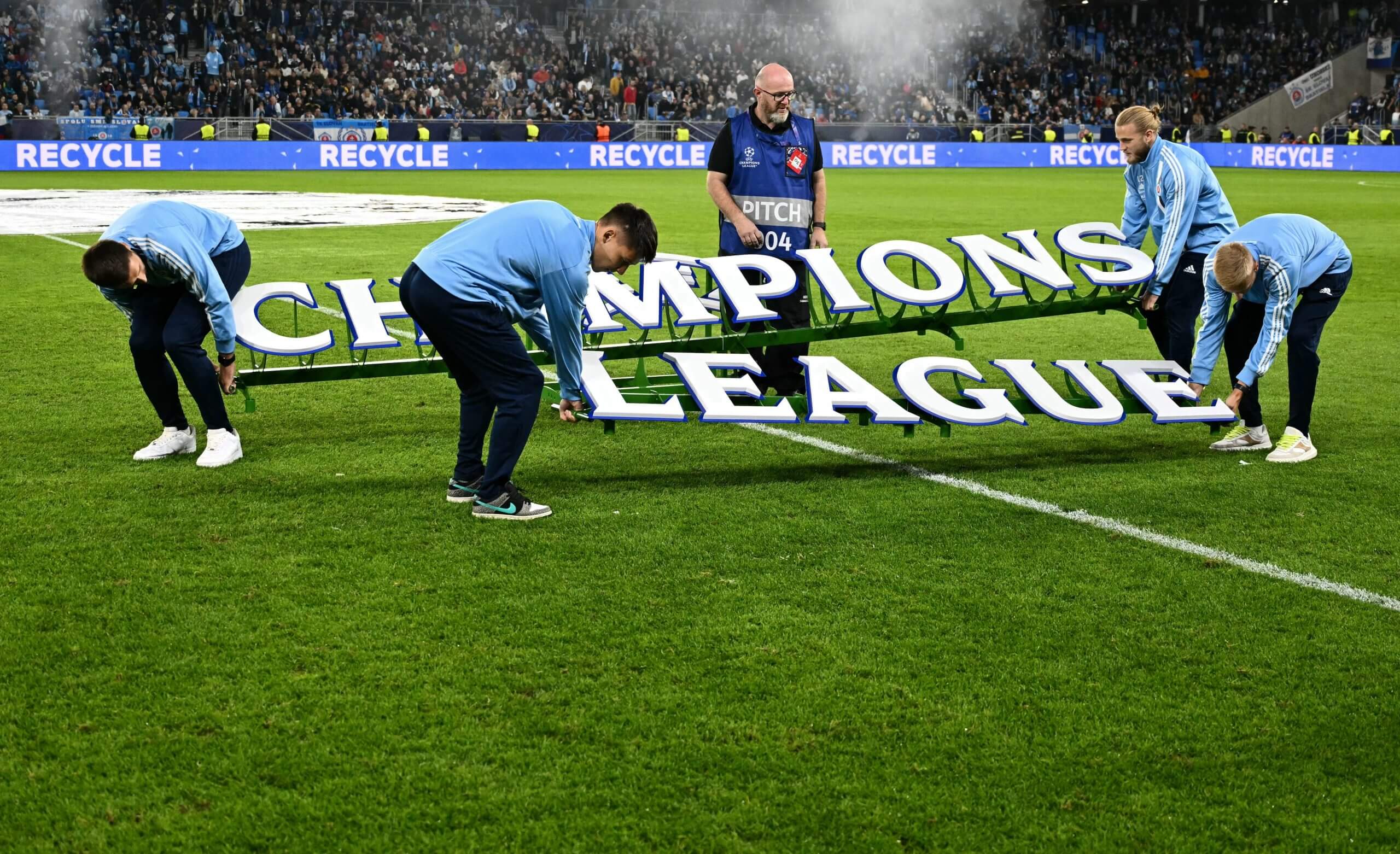
(Joe Klamar / AFP)
Those clubs with recent European pedigree, such as 2022-23 Champions League winners Manchester City and Chelsea, who lifted the trophy two years earlier, automatically earn more upon qualification by virtue of how that value pillar is distributed. But things are all relative, and though a Forest or a Newcastle wouldn’t immediately earn as much as those from the ‘Big Six’, they’d likely see a greater proportional revenue boost from UEFA’s premier club competition next season.
It isn’t just the lush green of Champions League pitches under the midweek lights that clubs have their eyes on.
Chris Weatherspoon
How are the contenders feeling?
With seven rounds of matches remaining (plus a game in hand for Newcastle, at home against Crystal Palace next Wednesday) nothing is decided yet. Newcastle may have that additional fixture in their back pocket but, according to Opta’s Power Rankings, they have one of the Premier League’s most difficult run-ins. Manchester City and Nottingham Forest, in contrast, have the easiest sets of matches — on paper at least.
Advertisement
But football is not played on paper, and pressure can do strange things to footballers and/or their managers.
Here, then, is the first of a weekly vibe check from our writers covering each of the realistic contenders to be up there with Liverpool and Arsenal in the top five when the final whistles blow up and down the country on that last, potentially pivotal round of fixtures on Sunday, May 25.
Nottingham Forest
The mood at Forest following the 2-1 defeat at Aston Villa on Saturday is a slightly curious one.
Despite losing to one of their direct rivals for Champions League qualification, there were more positives than negatives within a performance that saw them produce a resurgent second half, despite being without Chris Wood, Ola Aina, Taiwo Awoniyi and, by that point, Anthony Elanga, who had to be withdrawn at half-time.
This Saturday, they host an Everton side who have been made hard to beat by David Moyes, after he returned for a second spell in charge in January. Moyes lost his first game after replacing Sean Dyche but has since overseen a run of just one defeat (to title-bound Liverpool at Anfield) in 11 league matches — albeit with five of the last six ending in draws (including four games that have finished 1-1).
Forest, though, will be in a confident mood at the City Ground, where they have lost only twice all season and not since early November. They then have more than a week to prepare for a Monday night visit to an entirely unpredictable Tottenham side and their former Forest winger and academy graduate Brennan Johnson — when they will hope to be back to something close to full strength on the injury front.
Paul Taylor
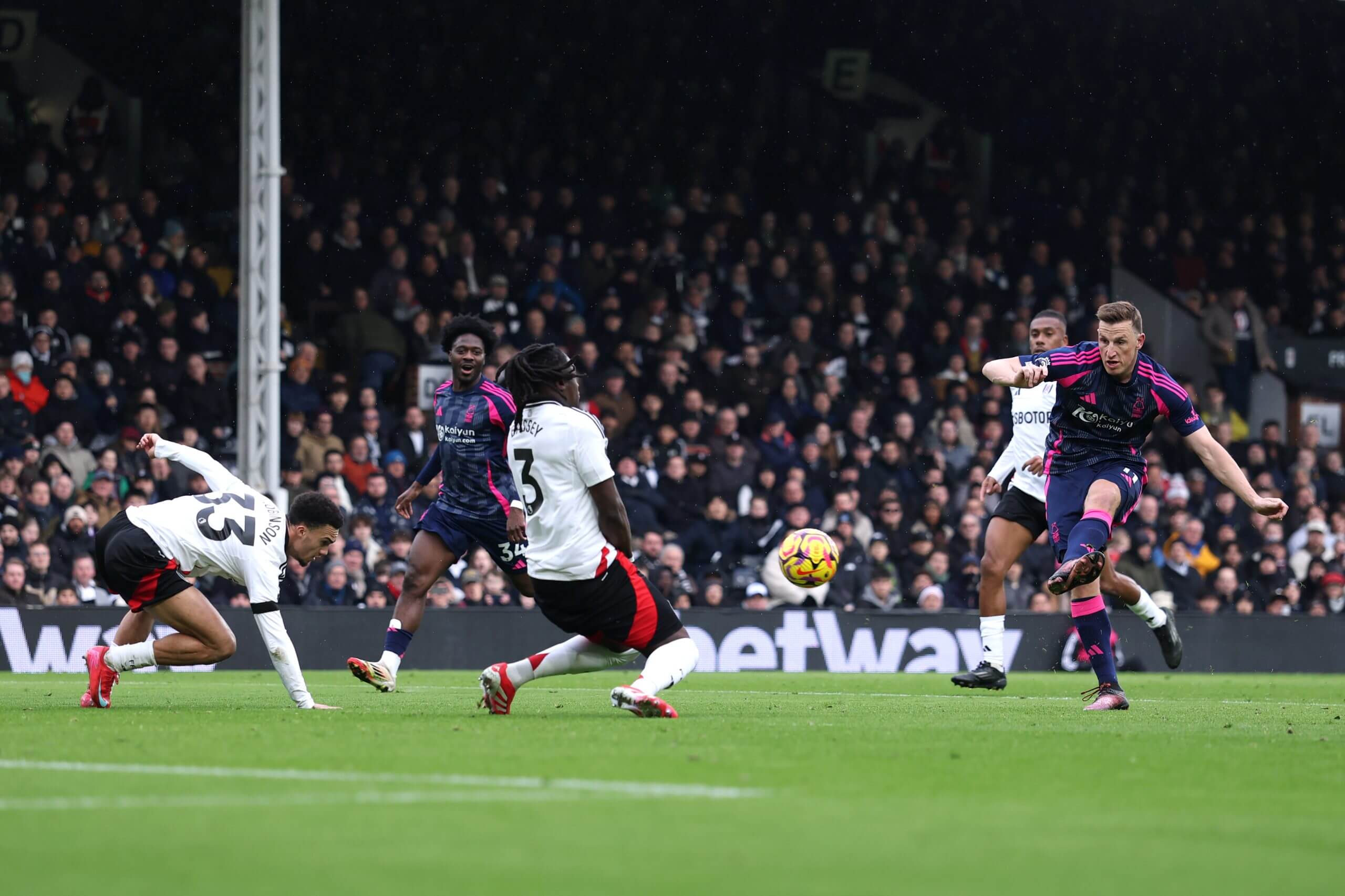
Forest would welcome some more Chris Wood goals in their remaining games (Ryan Pierse/Getty Images)
Chelsea
The vibe at Chelsea heading into the final stretch of the Premier League season might be best described as being somewhere between bullishness and desperation.
Enzo Maresca’s team have been conceding ground to their rivals for Champions League qualification virtually from the moment he played down their title chances after beating Tottenham 4-3 away on December 8 to take sole possession of second place, four points behind Liverpool. If the season had started on December 9, they would be 11th now, with as many losses (six) as wins in their 16 matches.
Advertisement
Some of the injuries which precipitated that slump have eased. Nicolas Jackson and Noni Madueke are back, which could reinvigorate struggling talisman Cole Palmer. Wesley Fofana, however, is out for the rest of the campaign and Chelsea’s defensive performance is markedly worse without the Frenchman in their back line. Romeo Lavia is also a significant (and ongoing) absentee.
Home form has just about kept them afloat; Chelsea have won five on the spin at Stamford Bridge, largely taking care of business against struggling opposition including Wolves (currently 17th), Southampton (last), Leicester (19th) and Spurs (14th).
That will need to continue there against third-bottom Ipswich on Sunday because the fixture list is about to get much harder. Indeed, their final four league games have the feel of a gauntlet: Liverpool at home, Newcastle away, Manchester United at home, Forest away.
Top five is more doable than top four, but achieving either will be an uphill battle.
Liam Twomey
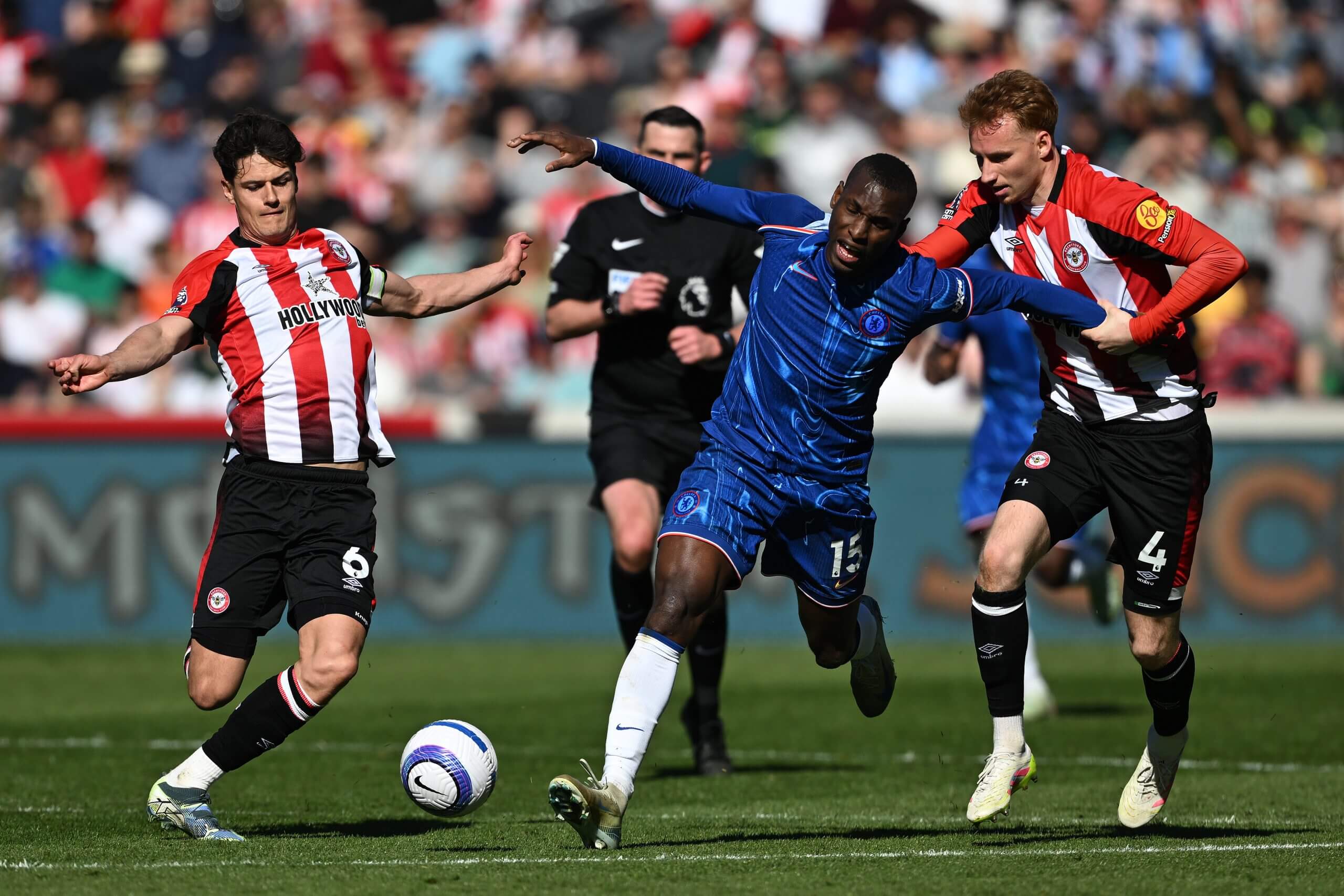
Nicolas Jackson’s return is a boost for Chelsea’s top-five prospects (Mike Hewitt/Getty Images)
Newcastle United
An already historic campaign can still become a truly exceptional one for Newcastle — and momentum is very much behind them in their pursuit of a top-five finish.
Rather than slacken their focus following their Carabao Cup final victory over Liverpool last month, which delivered the club’s first piece of major domestic silverware in 70 years, Eddie Howe’s side have since secured back-to-back victories over Brentford and Leicester, making it four wins in a row in all competitions.
Already in fifth, below Chelsea on goal difference alone, Newcastle also have a game in hand on all of their rivals in this scrap for the top five. That match takes place on Wednesday, when Crystal Palace come to Tyneside and, while that will be a difficult assignment — coming up against another in-form side and playing the middle fixture in a run of three matches over six days — it presents a real opportunity, too.
Advertisement
Before that, Newcastle welcome Manchester United to St James’ Park on Sunday, looking to secure a first-ever Premier League double over the division’s 13th-placed side (and their first in a league season since 1930-31). Even given the visitors’ impressive defensive performance in a goalless derby against champions City last weekend, Newcastle rightly will be targeting a victory.
A minimum of four points, but ideally six, from these two games should cement Newcastle’s position as favourites for one of those other three Champions League spots.
Chris Waugh
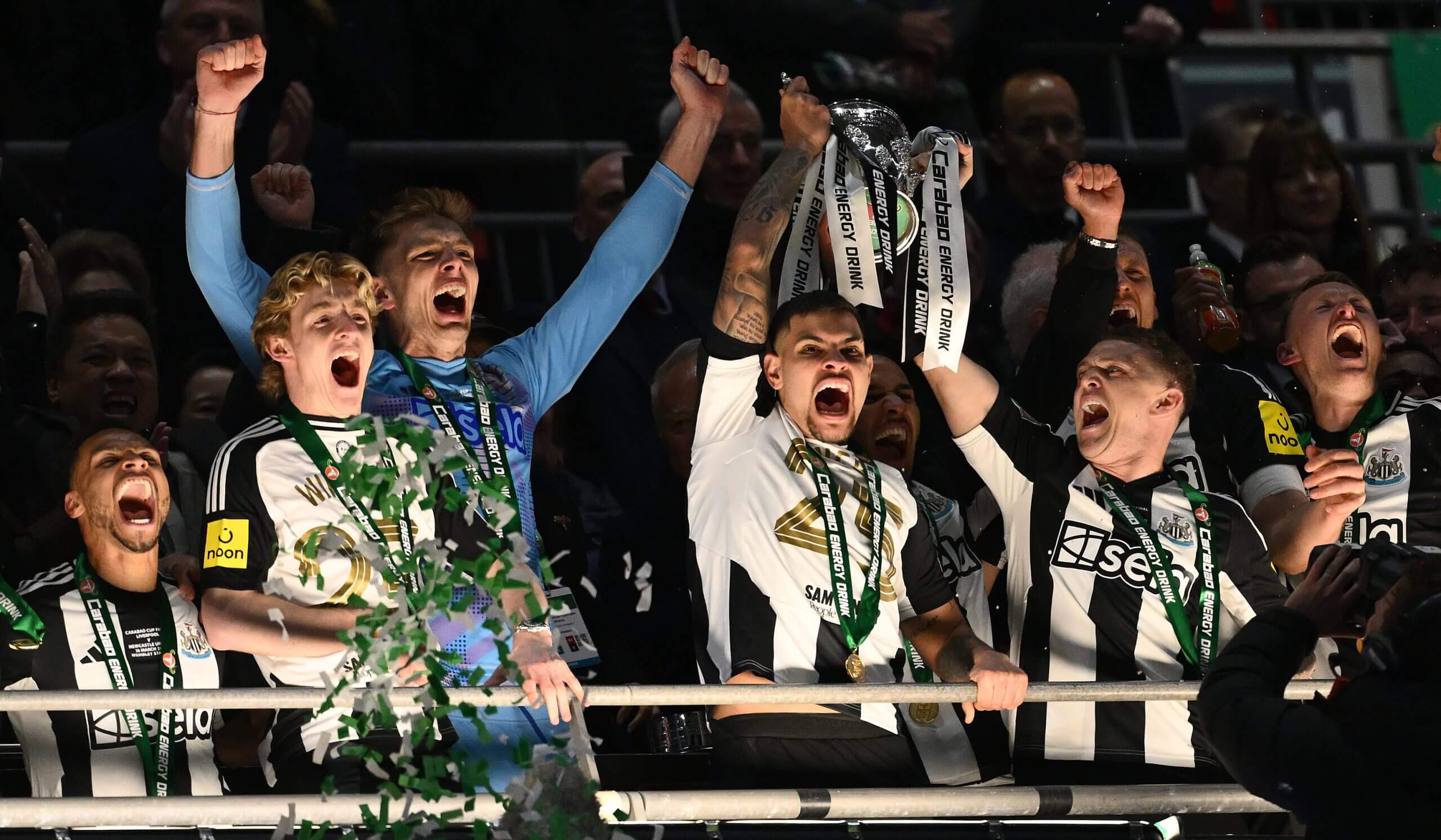
This season has already been a success for Newcastle – Champions League qualification would cap it off beautifully (Stu Forster/Getty Images)
Manchester City
Ordinarily, you would expect Manchester City to shrug off any issues come the business end of a season. Recovering from a massive midweek Champions League game? Facing a team in form? No problem.
But not so in 2024-25. City seemed content with a draw/scared by the idea of Manchester derby defeat against United at Old Trafford last weekend and while they are more stable now than they were during the winter months, there are still plenty of question marks — a major one being how they can cope over these remaining matches without Erling Haaland, who won’t play again this season because of an ankle injury.
That means that Saturday’s home game against Crystal Palace is not regarded as confidently as it may have been in previous years. Palace also have a good record against City even when Guardiola’s men were flying high (two wins and two draws in their past six trips to the Etihad Stadium) and something as trivial as the game being the weekend’s early kick-off is another reason for concern.
City have only won eight of their last 22 league games and will have to get at least three or four more from those still to play if they want one of the five Champions League spots.
Sam Lee
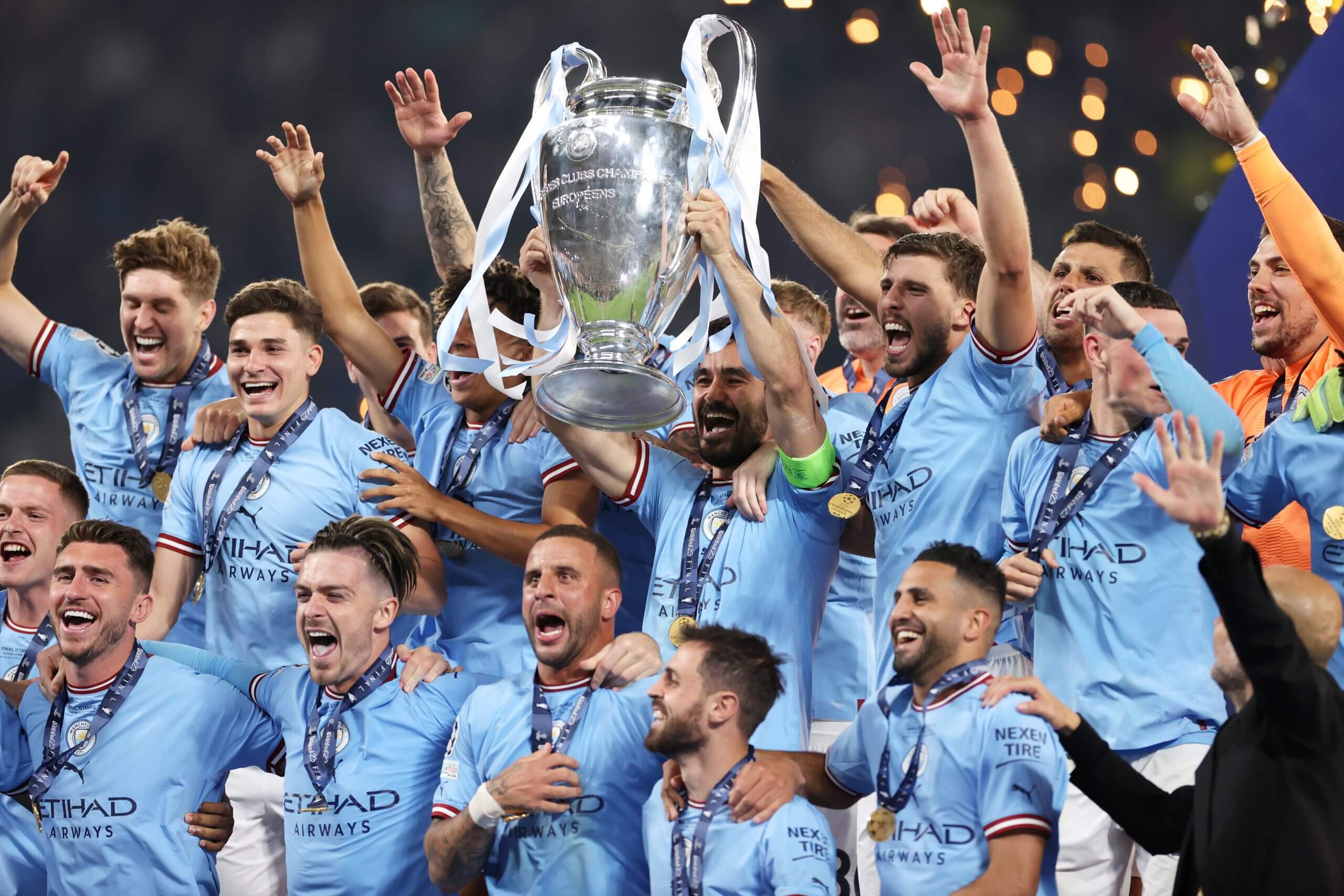
City won the Champions League less than two years ago; now they are battling merely to qualify for it (Michael Steele/Getty Images)
Aston Villa
Regardless of Villa’s run of seven straight wins across three competitions coming to an end away to a formidable Paris Saint-Germain side in the first leg of a Champions League quarter-final on Wednesday, there is a feeling the squad are peaking at the right time.
Manager Unai Emery has a clean bill of health, significant strength in depth — he made eight changes to the starting XI for the win against Nottingham Forest last weekend and will likely do similar on Saturday away to already-relegated Southampton — while confidence that his players can make a late run into a second straight Champions League place is strong, given some of their rivals are beginning to fade.
Advertisement
Victory over Southampton would set them up perfectly for Newcastle’s visit seven days later — a fixture that’s looking like a real top-five six-pointer.
Jacob Tanswell
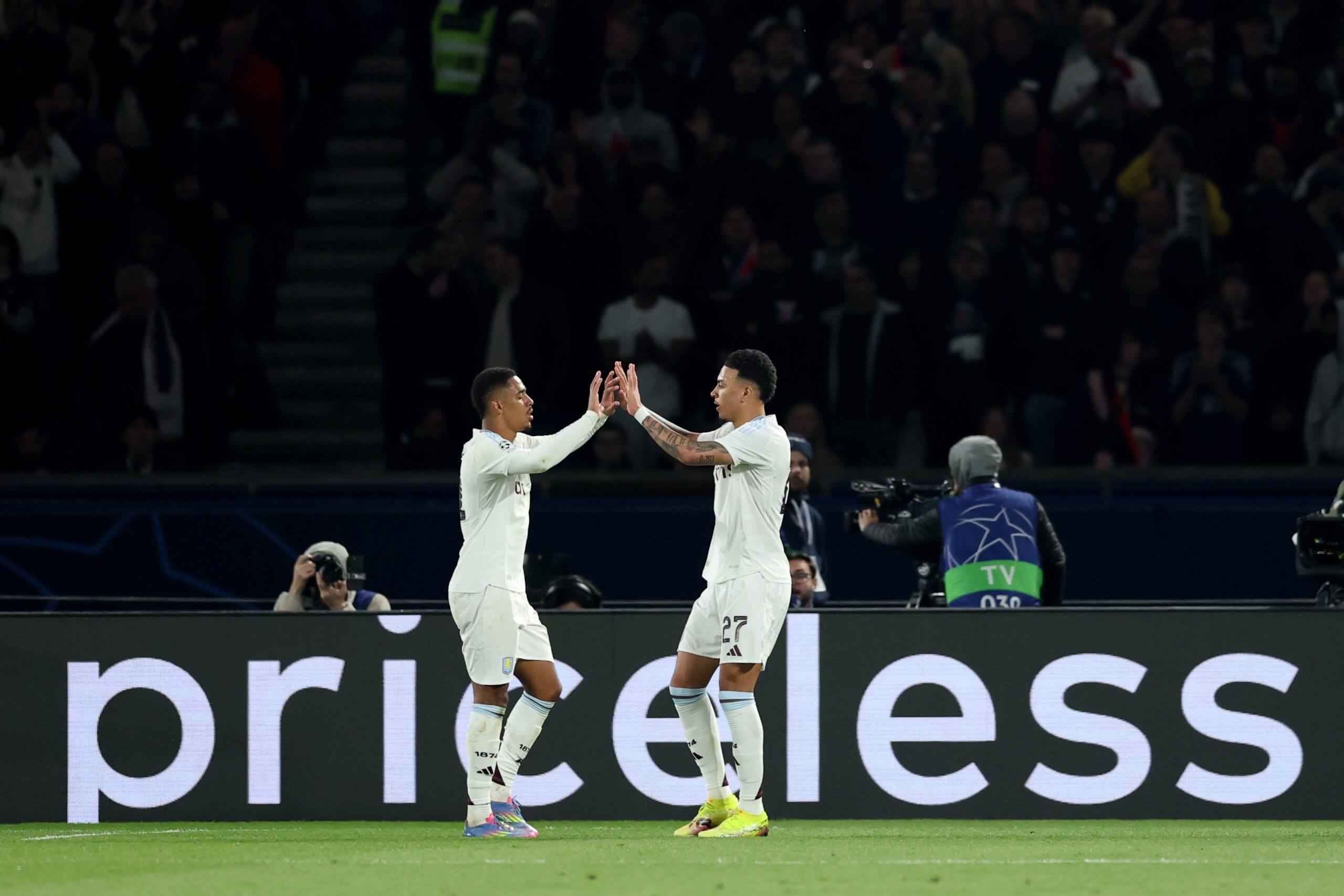
Villa would love to be back in the Champions League next season (Michael Steele/Getty Images)
Any other business
Newcastle, as winners of the Carabao Cup, already have a spot in the final round of Conference League qualifying guaranteed for next season, though that won’t stop Howe’s side aiming for the Champions League (or even Europa League as a sixth-place finisher).
Frankly, there are myriad qualification scenarios at play, with the progress of the sides still competing in the three UEFA competitions and in the FA Cup a key factor regarding how many spots the division eventually gets, and how they are distributed. Things will, however, become clearer as the weeks pass.
What we do know is that with Manchester United and Tottenham seemingly destined to finish in the table’s bottom half, both sides have to be all-in on the Europa League, where they have got as far as the ongoing quarter-finals.
Winning that competition’s final in the Spanish city of Bilbao on Wednesday, May 21 would not only rescue a largely painful 2024-25 for either club but will also give them a spot in the 2025-26 Champions League, meaning six Premier League sides taking part in it next season.
(Top photo: Julian Finney via Getty Images)


